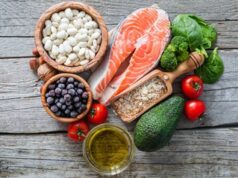If you have an f&b operation in your hotel, even if it is just serving breakfast, you will benefit from a new guide from an organization called Beyond Plastics. The guide is titled, “Hold the Plastic, Please: A Restaurant’s Guide to Reducing Plastic.”
The 47-page guide, which is free and available online for anyone to access, states that a shocking 44 percent of plastic litter in the ocean consists of takeout food and drink containers. (The second biggest source is fishing gear.) The Guide not only states the problem with plastics; it offers plastics reduction suggestions as well.
The Guide begins with Quick Start Suggestions. For example, it recommends beginning your plastic-reduction initiative by conducting an audit of plastic consumption throughout the restaurant—both back and front-of-house. How much plastic does the restaurant typically use? Which items are critical, and which can be easily substituted?
The importance of buy-in from staff (and customers) is emphasized. Are you still using disposable dishware? “Reusables are the gold standard for reducing litter, fighting plastic pollution, and combating climate change, and we recommend them above all other options. They pay for themselves over time and turn out to be less work than meets the eye, even accounting for the extra step of dishwashing,” the Guide says.
Still using disposable take-out containers? The Guide states, “If there is any single restaurant item that needs to be made reusable, it is takeout containers. Due to consumer demand, third-party vendors that supply, collect, clean, and redistribute takeout containers are becoming available all over the country. The cost of these services is competitive with using disposables, and patron satisfaction is high.” The Guide even includes a list of these services by city.
The Guide explains how reducing plastic can save you money and addresses bio-based compostable products and what you should know about using them. (Only 29 percent of full-scale food waste composting facilities in the United States are willing to accept them.) The Guide wraps up with a couple of case studies that highlight f&b operations that have avoided plastic in their operations.







